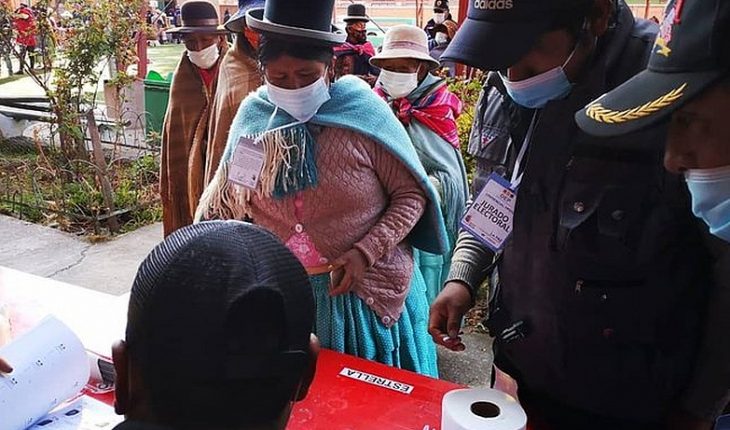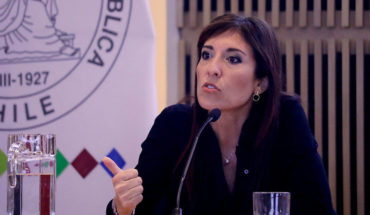Election day took place calmly and without confrontations at least during the first few hours since polling stations were opened, which takes place amid high polarization and fears of social upulsion following the results. Many Bolivians also expressed their hopes after defraying that elections, postponed twice due to coronavirus, will help the country of 11.6 million find a way out of the protracted social and political crisis. Hours before the vote, the Electoral Court withdrew the rapid system of dissemination of preliminary results to avoid, according to its president Salvador Romero, “confusion and uncertainty”. The measure will not allow the winner to be known on Sunday night until the completion of the official counts, which could take up to five days, according to Romero. This raised concern mainly in Morales’ party.” It was not a wise decision, it is doubt that it has been withdrawn hours earlier, but we will respect it,” Luis Arce, who is the presidential candidate for the Movement for Socialism (MAS), Morales’s political force, and who arrives at the polls with a close advantage in the polls, told the press. From his exile in Buenos Aires, Morales said the day before on twitter that “this last-minute decision raises doubts… We made observations that were not taken care of in a timely manner.” He didn’t give details. On Sunday, the former representative said at a press conference that “fortunately” his party has its own electoral control system and that “our delegates and delegates at each table will track and record every electoral record.” The people will also accompany us in this task of commitment to democracy, as they did many times, a situation we appreciate,” Morales added to the press.” I greet the democratic and peaceful spirit with which the vote takes place, impressive, without any confrontation until this moment,” he stressed. Former President Carlos Mesa of the centrist alliance Citizen Community (CC) and second in preferences said that perhaps it was not the best measure but that “to give more security to the vote, we must be patient to wait for the final results”. A rapid counting interruption in last year’s annulled elections over suspected fraud detonated a social outburst that resulted in 36 dead and Morales’ resignation after nearly 14 years in power. The pandemic forced the postponement of elections twice and raised political turnch. However, citizens who attended the polling stations early were hopeful of closing the crisis.” My hope is that we’ll solve the problems at once. I have a shop (sale) and I was affected by the pandemic and this fight of politicians,” said Rafaela Choque, 62, of Aymara origin as she left an electoral precinct.” I’m confident in this election. This crisis is already in good size,” said Roberto Inchauste, an entrepreneur who came to vote in a mask and protective suit. It wasn’t an election day like others and you could see few people on the streets. Some street food vendors near the grounds gave the vote color and flavor. Five candidates are contesting the leadership of the South American country, but there are three with the biggest options according to the polls. At the forefront of preferences is Arce, a former economics minister in Morales’ past government, who is escorted in the polls by former President Mesa.The right-wing businessman and former civic leader, Luis Fernando Camacho, of CREEMOS, whom the polls place third, could settle the dispute between Arce and Mesa in an eventual run-off as predicted by the polls.” I have faith in this election, democracy must be consolidated and I call everyone to take care of their vote,” Camacho said after voting at a school in Santa Cruz.To win in the first round it is necessary for the pointer to get 50% plus one of the votes or a minimum of 40% of the votes and at least a difference of 10 percentage points on the second most voted candidate. If necessary, the second round would take place on November 28. The entire 136-member Legislative Assembly will also be renewed for five years. Arce brings together popular rural, indigenous and urban sectors; Table to the moderate vote of the center and Camacho to the conservative and reactionary sectors to Morales based mainly in the eastern region of Santa Cruz, economic engine of the country and counterweight to the political influence of La Paz in the West. Bolivia marks the electoral calendar in South America amid the coronavirus pandemic that has further shaken the political climate in the region, Michael Shifter, president of DiaWashington-based Inter-American logo.In the country, the health emergency forced twice to suspend elections, which strained more atmosphere and forced candidates to refocus their speeches on health. On Sunday, the country recorded 139,710 contagions since March when the pandemic began and 8,463 decesses began. To avoid contagion, voting hours have been extended, people must go with hubs and keep their distance. Several agencies including the Organization of American States (OAS), the European Union, the United Nations have deployed observers. Acting President Jeanine Añez said police and military have taken to the streets “to guard order” and called for the polls to take place. However, on Sunday there were few soldiers on the streets. Voting will close at 5 a.m. and from 6 a.m. unofficial results of television networks based on surveys and quick counts can be known.
translated from Spanish: So far, a polarized presidential election in Bolivia has calmed down
October 18, 2020 |





